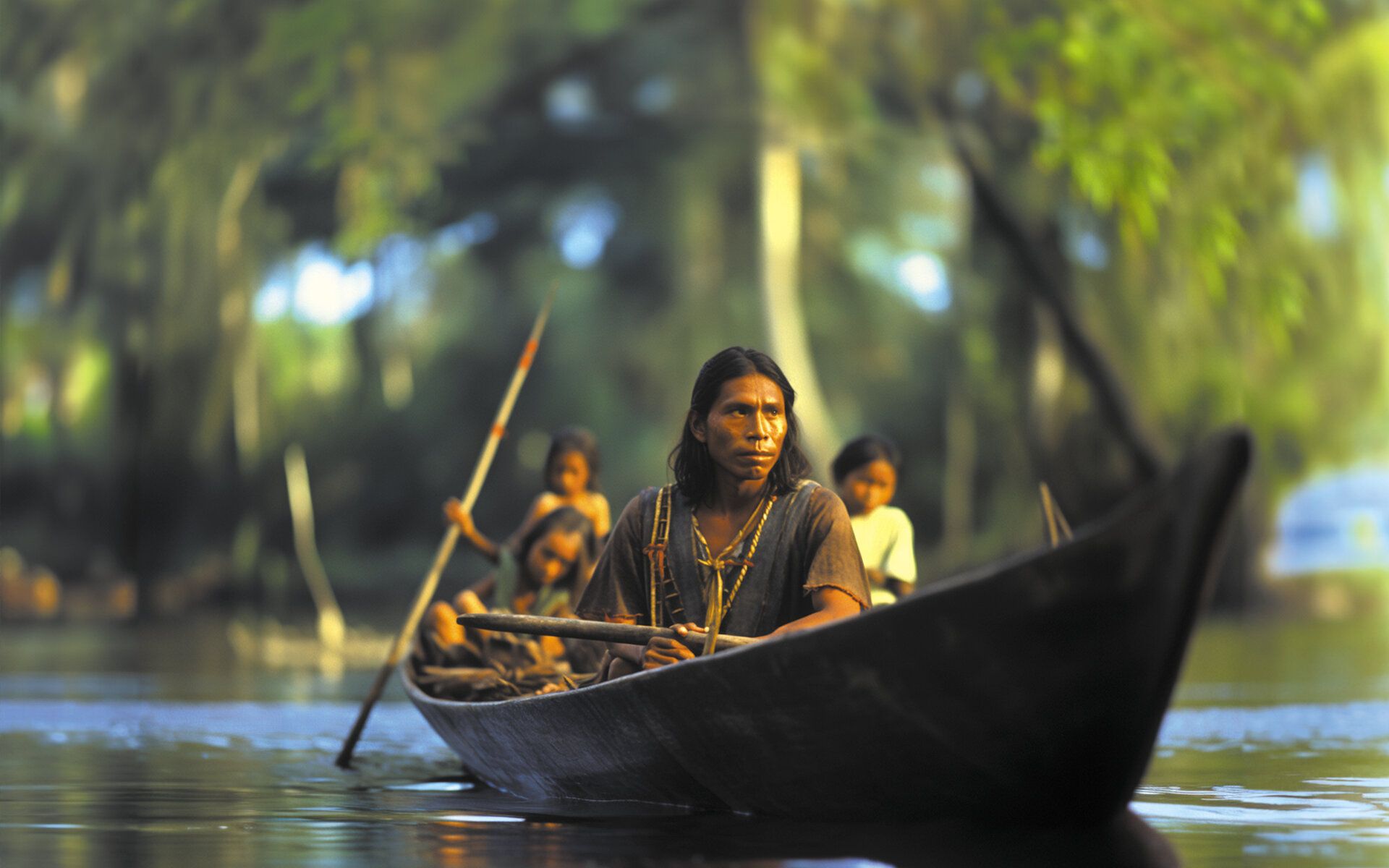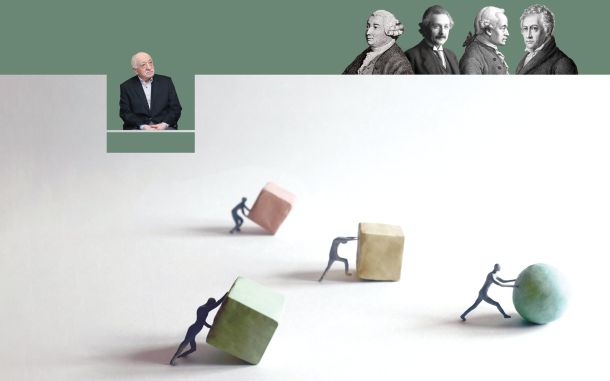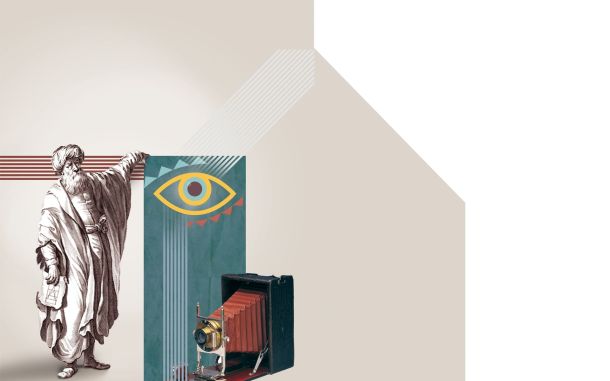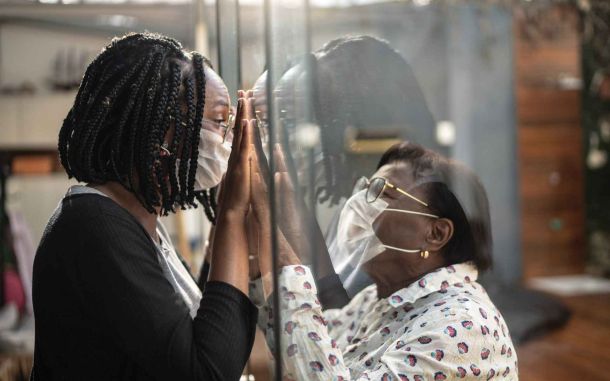The Place Where There Is No Math

In This Article
-
Can you imagine waking up in a place where numbers are not utilized. Is such a place possible? Can we find a location where numbers are absent?
-
The Pirahã tribe, an Amazon-native community, has no concept of mathematical numbers in their language. This tribe represents one of the rare communities globally that lack numerical words and mathematical concepts in their linguistic structure.
-
What sets the Pirahã apart is their contentment with what they have and their lack of envy towards the possessions of others. Unlike other tribes, they do not yearn for the belongings of Brazilians, such as guns or horses.
My father used to tell me a story in which a young boy was searching for a place where nothing like math existed. I am unsure if he crafted it for me or read it elsewhere. However, I still liken those with a fear of math to that child. Individuals with “math anxiety” spend their lives trying to avoid mathematics and its formulas, which often haunt them.
Numbers are ubiquitous in our lives, and a world without them is highly improbable. Consequently, a life devoid of mathematics is unimaginable. In an episode of the once-legendary TV show "Twilight Zone," a man wakes up to discover that nobody understands him. Imagine waking up one morning and realizing that your loved ones no longer comprehend your language. It is a nightmarish scenario where those who understood you yesterday fail to grasp your words today—your spouse, children, neighbors, and relatives. It highlights how the modern world can isolate us from one another, rendering us incomprehensible to those closest to us. Similarly, picture waking up in a place where numbers are not utilized. Is such a place possible? Can we find a location where numbers are absent?
Surprisingly, such a place exists in the Amazon jungle. The Pirahã tribe, an Amazon-native community, has no concept of mathematical numbers in their language. This tribe represents one of the rare communities globally that lack numerical words and mathematical concepts in their linguistic structure. Comprising approximately 700 to 1000 individuals living in scattered villages of 10 to 15 adults each, it takes around ten days to travel from one village to another by canoe. The Pirahã possess a unique language, referred to by anthropologists as "anumeric." Essentially, their language lacks expressions that indicate quantity. After significant effort, researchers have only identified three words related to the concept of numbers: "Hoi" means “one” or “a small quantity,” "Hooi" signifies “two” or “a slightly larger amount,” and "baa gisa" represents a collective or “many.” Thus, their numerical vocabulary is limited to "one," "two," and "many."
The first encounter between the Pirahã tribe and the modern world occurred in 1977, bringing this community to the attention of the wider population. Professor Daniel Everett played a pivotal role in introducing the world to the Pirahã people. Initially, Everett went to the tribe as a missionary, teaching them about Christianity and the Bible over several years. However, he found himself learning a great deal from them and eventually reconsidered his own beliefs. The experience was so profound that he not only stopped his missionary work but also resigned from being a missionary altogether. When Everett first discovered the Pirahã, he was filled with the same excitement as any missionary embarking on a new mission. In his own narrative, he expected this supposedly primitive tribe to enthusiastically embrace his faith. However, their own set of beliefs rendered his efforts fruitless during his first three years.
The tribe refers to themselves as Pirahã, meaning "straightforward" or "only human." Everett's initial observation was their sincerity. Despite the challenges they faced, the Pirahã people never complained about their conditions and always found reasons to be grateful and content. Everett even considered them to be the happiest people in the world. Their livelihood primarily relied on hunting and fishing, and all food obtained was shared among the villagers. Other Amazonian tribes exist alongside the Pirahã. However, what sets the Pirahã apart is their contentment with what they have and their lack of envy towards the possessions of others. Unlike other tribes, they do not yearn for the belongings of Brazilians, such as guns or horses. When they cannot acquire similar possessions, it does not break their spirits or make them feel bad. The Pirahã people take pride solely in being Pirahã; their self-esteem is exceptionally high, and they have no regrets.
The Pirahã tribe holds firm to their own values and beliefs. They believe in the existence of invisible beings known as "fast mouths" that reside in the forest. According to their beliefs, these beings are similar to the Pirahã people but speak in a different way. The Pirahã only believe in what they see, except for the “fast mouths.” Whenever Everett spoke to them about his faith, he faced the same question repeatedly: "Have you ever seen Jesus? Why do you continue to talk about things you have never seen?" It took Everett three years to gain acceptance among the tribe and learn their language. They refer to anyone who does not know their language as a foreigner and never truly consider them one of their own. Despite occasionally being called "brother," this did not contribute to Everett's missionary work. One day, a Pirahã individual approached Everett and said, "We know why you are here—to tell us about Jesus. We appreciate your friendship. You are a good person, but we do not wish to hear about Jesus either. Remember, we are not Americans." It was then that Everett began to question his own actions. How justified is it to impose one's beliefs on others? Eventually, these and similar thoughts led Everett to give up his missionary work. He underwent a personal transformation, realizing that these people were not superstitious and did not discuss things they had not seen or heard. According to Everett, the Pirahã people were the happiest individuals he had encountered in the world. Moreover, their lives were free from the complexities of mathematics, numbers, taxes, and mortgages.
Although the Pirahã people lack mathematical knowledge and do not use quantities as we do, it would be a mistake to assume they lack intelligence. They possess extensive knowledge about the plants in the forest and readily recognize which plants can be used to cure various ailments. They have the ability to train wild animals, such as raising a baby eagle from an early age and then using it for hunting. They compare their hardworking nature to that of ants. Their environmental knowledge is astonishing, even though they may be considered "primitive." According to the Pirahã people, Pirahã individuals work day and night, just as ants do. If they choose to, they can interact with people in the big city. Everett, who lived among the Pirahã people for seven years, recounts the story of a girl from the tribe who went to work in the city. She worked as a cashier in a supermarket. However, after two years, she returned to her village, expressing that she found city life highly stressful and missed the tranquility of her village. This example alone demonstrates that the Pirahã people possess cognitive abilities akin to mathematics, although they prefer not to use them in the conventional sense. Their language includes concepts related to objects, colors, and intonation, but it lacks numbers and the concept of time. They divide time into morning, noon, and evening. If a tone is not heard, communication can become challenging. Due to the absence of numbers in their language, questions related to quantities can be perplexing for them. For instance, a simple question like "How many children do you have?" holds no meaning for them. They find such questions strange and wonder why these outsiders ask them. Understanding the unique dynamics of tribal life provides insight into why this question, in particular, seems odd, irrespective of their lack of numerical concepts. Within the Pirahã community, children belong to the tribe, and everyone collectively takes care of them. The same sense of communal responsibility extends to the sick, the needy, and the elderly. Money is not used within the tribe, as they adhere to a culture of exchange. Although Brazilian merchants attempted to introduce money to the tribe, their efforts were unsuccessful.
The Pirahã people, an indigenous tribe living in the Amazon rainforest, have a unique perspective on mathematics and life. Their numerical system is limited to the concepts of one, two, and many. While their understanding of mathematics may differ from other cultures, these concepts hold significance in their worldview. From a philosophical and religious standpoint, one can interpret these concepts as representing different aspects of existence. One can symbolize the Creator, who is believed to have the power to create everything from nothing. The Creator is seen as unequalled and knowing Him is considered valuable. For the Pirahã, life feels incomplete and meaningless without this knowledge. The concept of two represents humanity. The union of a male and a female, symbolized by Adam and Eve in various belief systems, is seen as the origin of humankind. Despite their differences, the unity of these two parts is considered essential for giving meaning to life. The continuation of human life relies on the existence of couples, which the Pirahã attribute to the world order established by a higher power. Lastly, the concept of many represents the diversity found in the universe. The Pirahã observe the multitude of life forms, such as animals, insects, plants, mountains, and stones. The Quranic verse from Surah Nisa, verse 1, emphasizes the scattering of men and women from a single human self and its mate, highlighting the abundance and diversity of human beings.
The Pirahã's limited numerical system of one, two, and many may be rooted in their cultural perception that the abundance and diversity of the universe reflect the Creator's design. It's important to note that the Pirahã culture and worldview are unique, and their understanding of these concepts may differ from interpretations in other cultures and belief systems. The perspective presented here reflects a specific religious and philosophical viewpoint. Different individuals, cultures, and belief systems may have alternative interpretations based on their own experiences and beliefs.









